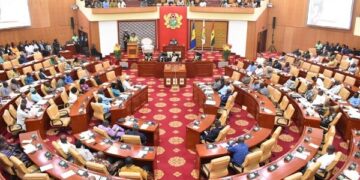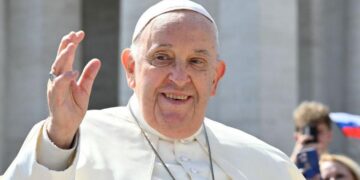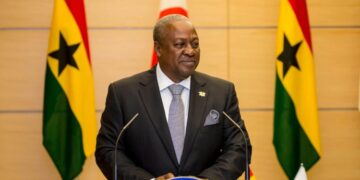Russian President Vladimir Putin is set to address a global summit for the first time since the Wagner mercenary group staged a mutiny in June.
He will join leaders from China, India, Pakistan and four Central Asian countries virtually for the Shanghai Cooperation Organisation (SCO) summit on Tuesday.
India is chairing the summit this year, which is taking place just two weeks after Indian Prime Minister Narendra Modi was hosted by US President Joe Biden for a state visit.
Regional security, economy, food security, climate change and Afghanistan are some of the issues that are likely to be discussed in the meeting.
But most importantly the SCO will serve as a platform for Mr Putin to show that he is still welcomed and heard on global platforms despite the Ukraine war.
China, Russia and four Central Asian countries formed the SCO in 2001 as a countermeasure to limit the influence of the West in the region. India and Pakistan joined the group in 2017.
All SCO members states, which also includes Kazakhstan, Kyrgyzstan, Tajikistan and Uzbekistan, have either abstained or not voted in favour of UN sanctions against Russia. It will be interesting to see if Mr Putin uses the platform to signal the world that he is still important and very much in command.
India’s stand to not criticise Russia directly in the early days of the war came under criticism from its Western partners
He might also warn the West against what he sees as their interference in Ukraine. And that may not be very palatable to Delhi.
India, which is hosting the event, would want some tangible outcomes in form of pledges on anti-terrorism measures, trade, financing to fight climate change, fight against drugs trade, food security and money laundering. The meeting is taking place virtually, so bilateral agreements are off the table.
But this is a big diplomatic year for India as it will also host a summit of G20 leaders in September. The two forums have different priorities and geopolitical alliances and that poses a big challenge for Delhi.
The SCO summit also comes just days after the US rolled out the red carpet for Mr Modi for his state visit.
He signed significant defence deals with Washington but the joint statement also made indirect references to Russia’s war in Ukraine and China’s growing influence in the Indo-Pacific.
Such vastly differing geopolitical priorities may look like a diplomatic nightmare to many, but Delhi insists that it shows the strength and independence of its foreign policy.
On Russia, India seems to have convinced the West that it cannot afford to upset its time-tested ties with Moscow.
India’s stand to not criticise Russia directly in the early days of the war came under criticism from its Western partners. But that has changed as Washington and other allies have accepted, even though reluctantly, Delhi’s position.
India still imports nearly 50% of its defence needs from Russia despite serious efforts by Mr Modi to diversify the portfolio in recent years.
Meanwhile, Mr Modi’s challenge will be to manage its serious differences with neighbours China and Pakistan during the summit.
Pakistan and India issued sternly worded statements against each other during a SCO summit of its foreign ministers in Goa in May.
India often uses internal platforms to indirectly blame Pakistan for fuelling terrorism in the region.
Delhi may not do that under its presidency but any mention of state-sponsored terrorism may rattle Islamabad.
China’s stand on what the Russian leader says will most likely be positive but it will be interesting to see if President Xi Jinping talks about the Indo-Pacific and specifically takes aims India-Washington ties.
India and China relations have been tense in recent years, especially since their troops clashed in 2020 along their contested Himalayan border.
Reports suggested that Iran might be given full membership of the SCO this year – a first for Tehran in decades. This move will most certainly infuriate the West.
Mr Modi likes big headlines and showing results but he will have to overcome serious challenges to achieve a joint SCO statement that looks promising and aligns with Delhi’s priorities on issues like food poverty, terrorism and climate change.



















































































